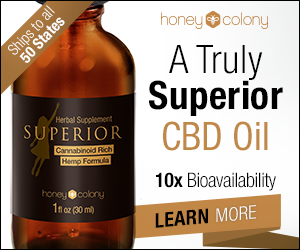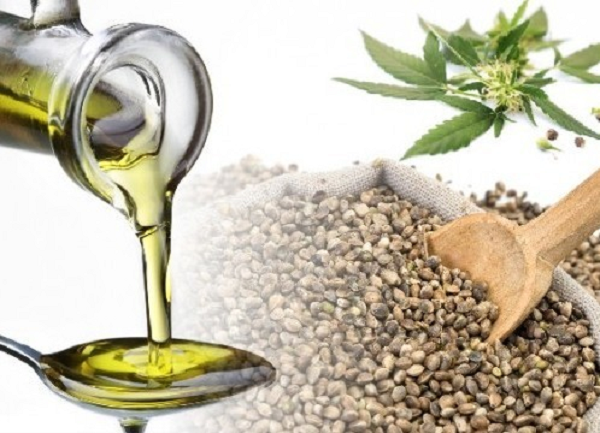Living well can mean many things. For some, it might be getting through the day without pain or overcoming a chronic, debilitating illness. For others, it involves enhancing your well-being and making informed dietary choices. Regardless of your health goals, CBD oil has something to offer.
CBD is an abbreviation for cannabidiol, a cannabis compound found in hemp and marijuana. It is regarded as so universally friendly to the human body that it has been often called “the God molecule.”
CBD’s are being effectively used as a therapeutic resource, the new rising star in the expanding, revolutionary realm of nutraceuticals and dietary supplements. The oils are pressed from hemp flowers, stalks, and stems, and marijuana plants, and are often blended with other oils, such as coconut, olive, or hemp seed oil. When extracted by non-toxic methods, these oils are safe and natural.
CBD Oil Mania
CBD is quickly changing the debate surrounding the use of marijuana as medicine. While doctors can’t seem to look past certain side effects of THC, CBD doesn’t appear to present that problem. Evidence of CBD’s medical benefits continues to grow.
Studies underway indicate that CBD is either effective or shows promise supporting organ, muscle and joint health, as well as immune system health.
Research is still underway, but the wide spectrum of known applications is a testament to its health properties. There is also growing interest in CBD oils for overall health and well-being, as more consumers become increasingly informed and health-conscious, and question the numerous side effects of traditional Western pharmaceutical drug therapies.
Hemp Vs Marijuana: What’s The Difference?
The hemp plant is one of the oldest domesticated crops known to man. (Thomas Jefferson drafted the Declaration of Independence on hemp paper back in 1776.) It has been used for centuries to make paper, rope and fabrics. Hemp and marijuana belong to the same cannabis species, but are genetically and chemically distinct. One of the primary differences is that marijuana contains high amounts of tetrahydrocannabinol (THC), which is responsible for the intoxicating effects associated with recreational marijuana. Hemp plants contain only trace amounts of THC. Put simply, you can make a great hammock with hemp, but smoking it won’t get you high.
Which is better: CBD oil made from hemp or CBD oil made from marijuana?
There’s an ongoing debate, perhaps the shortest answer is that the right product is the one that suits your needs and preferences. It’s important to know that some CBD oil is virtually THC-free while others contain THC.
CBD and THC are both natural cannabinoids found in hemp and marijuana in varying amounts. They can be either separated or blended together in cannabinoid products. Access to a CBD product containing THC involves acquiring a state-authorized medical marijuana card because of the active role THC plays in the psychoactive high.
CBD oils made from hemp and mixed with hemp seed oil contain only trace amounts of THC. And anyone can buy them. HoneyColony’s Superior CBD Oil, for example, contains less than 0.3% THC, thus making it legal in all fifty states.
Furthermore, the amount is still enough to cause the “Entourage Effect”, which is the synergistic effect that occurs when various compounds of the plant are used and work to provide it’s many health benefits.
In short, hemp is a natural CBD powerhouse. It has been bred over time to contain high concentrations of CBD. Hemp plants produce more CBD than THC, while marijuana produces more THC than CBD.
Interestingly, research has shown that CBD helps reduce the psychoactive effects of THC, separating hemp further from marijuana.
The important role played by THC has been overshadowed by the ongoing war on drugs, which has had a chilling effect on legitimate medical research. Despite this, a growing body of anecdotal and other evidence has begun to emerge that sheds light on the important role played by THC. And New Mexico and Maine now allow Veterans Administration hospitals to prescribe medicinal marijuana for PTSD.
Not surprisingly, many researchers and health care advocates agree that THC and CBD are highly effective in combination. And people who have serious health problems are well advised to make the effort to read more about the known benefits of products that combine the two. It isn’t about THC or CBD, but rather the synergy of the compounds in the whole molecule that prove to be the most effective.
Research is underway to indicate that THC confers additional benefits in conjunction with CBD, but it also requires a medical marijuana card. While this may be well worth the effort, there’s a lot to be said for the ease of buying legal CBD products. For many, this option is a good place to begin your relationship with this plant, whose role as a versatile curative agent dates back to ancient Greece and China.
HoneyColony’s CBD Oil offers a legal way to spread a revolution. What makes their CBD unique is that although it is legal as a low-THC product, the bioavailability factor makes it deliver like a potent medicine. Rapid absorption into the body allows for the supportive effects to work instantly throughout the body. Their patent-pending formulation is designed to increase CBD’s effects, giving you much more for less.
What is the difference between hemp seed oil and CBD extracts?
There’s a big difference between the seed of any plant and its flowers. That same concept applies here. Hemp seed oil is made exclusively from hemp seeds and contains virtually no CBDs, while CBD extracts are made from cannabis flowers alone or flowers and leaves together. Hemp oil is a dietary supplement that is also used in soap, creams, and other body care products. And because unrefined hemp oil is rich in fatty acids, many people like to use it as a salad dressing or dietary supplement.
Although nutritious, simple hemp seed oil is not a significant source of CBD. Hemp seeds used to make hemp oil actually contain low levels of CBD, typically less than 25 parts per million. By contrast, CBD extracts are produced from cannabis flowers that are up to 15 percent CBD or 150,000 parts per million.
To make sure you are getting the real thing, always read labels and product descriptions. The best companies are up front about what they are selling and differentiate between plain hemp seed oil and CBD-rich products.
As the demand for alternative health care grows, many wholesalers are marketing a broader range of products that include CBD capsules, and vape oils. Hemp shampoos and hand creams are marketed alongside CBD sprays. There’s nothing wrong with this mingling of legal, wholesome products. But it can be confusing. Also, many companies are cashing in on the exploding market for legal CBD by offering cheap but inferior, mass produced products.
Oftentimes, CBD is extracted in a toxic way. Last year alone, 20 new brands in the United States entered the marketplace. Read before you buy. Educate yourself and focus on quality and integrity. Be discerning. Be suspicious of bargain basement pricing.
To learn more, just click on the photo! 



